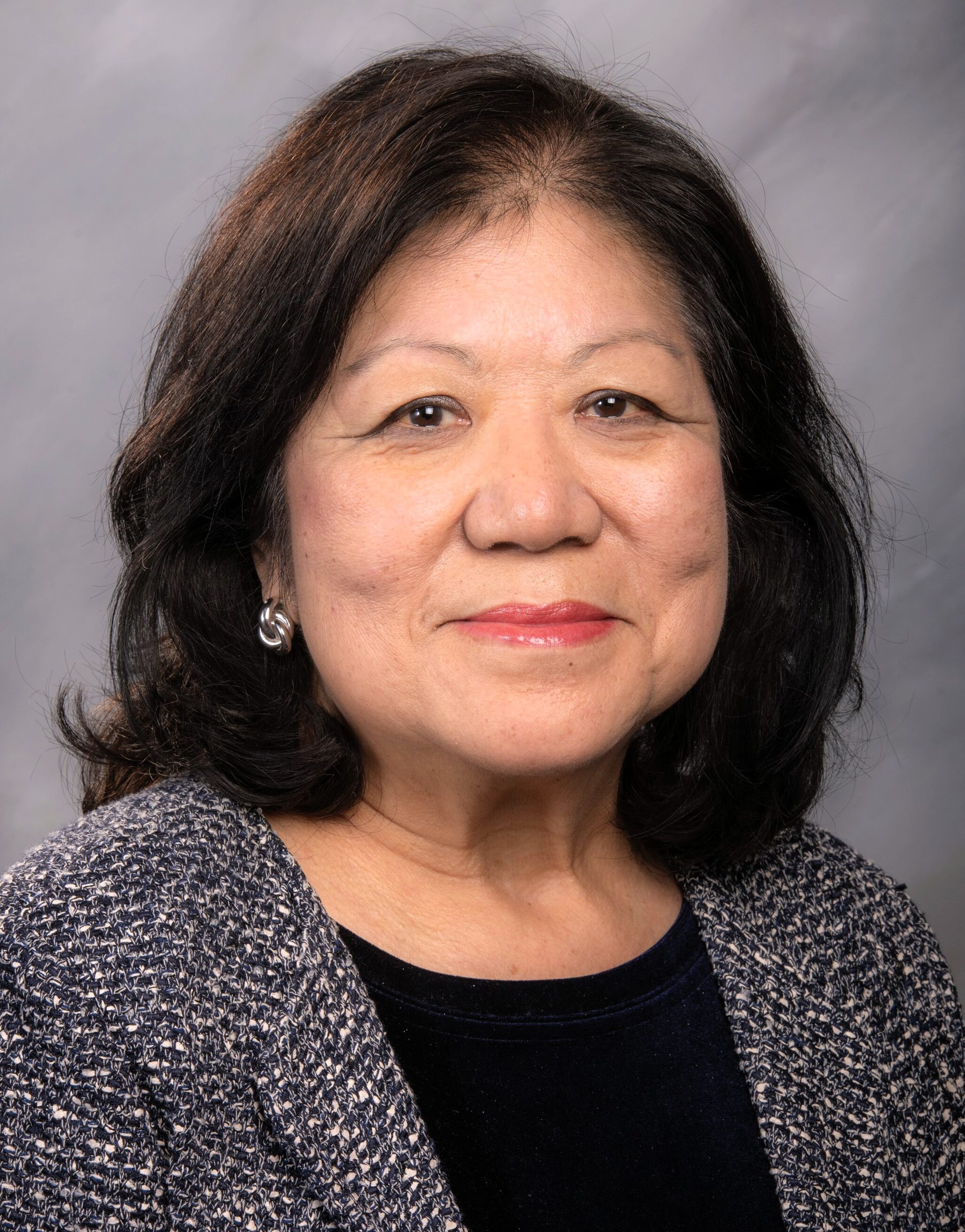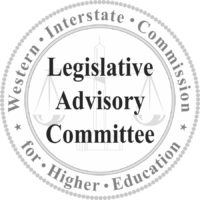Since 1955, California has partnered with and benefited from WICHE through regional collaboration, resource-sharing, sound public policy, and innovation.
2024-25 ACADEMIC YEAR
by California students through WICHE Student Access Programs
through WUE
through WRGP
WICHE’s Student Access Programs
WICHE operates three Student Access Programs that together saved students $671 million in 2024-25. Each program supports students at each level of postsecondary education: undergraduate, graduate, and professional healthcare studies.
- Students gain from increased choice and savings.
- Schools gain by optimizing enrollments.
- States and Pacific Island members gain by growing the skills of those they serve and strengthening their workforce.
As a first-generation college student, thanks to WUE, I have access to a quality and affordable nursing education, in a diverse cultural setting. It has allowed me to pursue comprehensive clinical training and participate in valuable extracurricular activities, preparing me to address healthcare disparities in underserved communities.
ADRIAN, California resident, Nursing, University of Hawai‘i at Mānoa
Improving Lives in California
WICHE works collaboratively to expand educational access and excellence for all residents of the West. By promoting innovation, cooperation, resource sharing, and sound public policy, WICHE strengthens higher education’s contributions to the region’s social, economic, and civic life. Learn more about our mission.
WICHE brings together senior academic leaders to foster dialogue about issues facing individual institutions through its leadership and professional development networks.
WESTERN ALLIANCE OF COMMUNITY COLLEGE ACADEMIC LEADERS – 2-YEAR INSTITUTIONS
- California Community Colleges Chancellor’s Office
- Cerritos College
Aisha Lowe, California Community Colleges, is a member of the Alliance executive committee.
WESTERN ACADEMIC LEADERSHIP FORUM – 4-YEAR INSTITUTIONS
- California State University, Long Beach
- California State University, Northridge
- University of California, San Diego
Karyn Scissum Gunn, California State University, Long Beach, is a member of the Forum executive committee.
WESTERN ACADEMIC LEADERSHIP ACADEMY is a yearlong professional development program for academic leaders aspiring to become chief academic officers in the WICHE region’s postsecondary sector. Eleven cohort members from California institutions have participated in the Academy since its inception in 2015. Karyn Scissum Gunn, California State University, Long Beach, will serve as a primary faculty member for the Academy as of July 2024. Glen Nelson, California State University Monterey Bay, serves as a guest faculty member for the Academy.
NO HOLDING BACK California State University, Fullerton is one of 12 WICHE institutions that participated in 2022-23 in analyzing data, policies and practices related to transcript and registration holds, contributing toward tools for other institutions to undertake this work.
WICHE offers student health and technology contracts through a COST-SAVINGS PROGRAM with the Midwestern Higher Education Compact (MHEC) to colleges and universities, K-12 school districts, local and state municipalities, and nonprofit organizations with an education emphasis. Last year, entities that used these contracts saved 9% over what they otherwise would have outside this joint purchasing arrangement. The total savings in California was $1,681,962. Learn more.
WICHE ACADEMY FOR LEADERS IN THE HUMANITIES is a two-year leadership development program for aspiring academic leaders with a background in the humanities. M. Keith Claybrook, Jr., California State University, Long Beach; Eric Kupers, California State University East Bay; and Christopher Moreman, California State University East Bay are participating in the 2024-2026 cohort.
WICHE Behavioral Health Program (BHP) administers the RURAL COMMUNITIES OPIOID RESPONSE PROGRAM (RCORP)—a multiyear initiative supported by the Health Resources and Services Administration within the U.S. Department of Health and Human Services to identify treatment barriers and best practices for preventing and treating substance use disorder. In California, the RCORP program supports one grantee.
TOGETHER WITH VETERANS (TWV) – RURAL VETERAN SUICIDE PREVENTION PROGRAM enlists rural Veterans and local partners to reduce Veteran suicide in their own community. Funded by the U.S. Department of Veterans Affairs and administered by the WICHE BHP, TWV provides individualized coaching, tools, training, technical assistance, and resources, supporting 16 total communities in the WICHE region, representing 11 Western states. The TWV Program has one site in Mariposa County and has served over 2,950 rural Veterans from that area.
Knocking at the College Door is the leading U.S. resource for projections of high school graduates. Released in December 2024, the newest edition is essential for postsecondary policymakers, planning and workforce efforts, and economic development.
WICHE DATA RESOURCES offer curated data and policy resources to support better-informed decision-making. WICHE’s research projects and collaborations cover postsecondary completion, health workforce development, behavioral health in postsecondary education, open educational resources (OER), state finance, prior learning assessment, and more:
- Tuition and Fees in the West includes tuition, fees, and enrollment data about 350+ public institutions in the West.
- Benchmarks: WICHE Region presents information on the West’s progress in improving access to, success in, and financing of higher education.
- Data on over 35 indicators in WICHE’s Regional Fact Book for Higher Education in the West.
DATA EXPERTS WICHE staff provide analysis on finance, financial aid, articulation and transfer, strategic planning, student demographics, and more, as well as host peer-to-peer calls of state, system, and institutional chief academic officers to identify areas of potential collaboration and resource sharing across the West.
CHIEF ACADEMIC OFFICERS NETWORK is an opportunity for state and system staff to participate in regular collaborative calls with colleagues around the region.
WICHE experts are providing support for California’s task force on open educational resources (OER). The state’s task force will guide the use of the historic investment in the development, adoption, and use of zero cost course materials to support student success. WICHE also has convened staff from across the region in a collaborative network to identify challenges and promising practices to help address workforce shortages in the health sector.
Created by the WICHE Commission in 1995, the LEGISLATIVE ADVISORY COMMITTEE (LAC) works to strengthen state-level postsecondary policymaking across the West. Members are legislators appointed by each state, territory, or freely associated state in the WICHE region; they meet annually to explore emerging policy issues and develop strategies for interstate collaboration.
WCET- The WICHE Cooperative for Education Technologies is the leader in the practice, policy, and advocacy of digital learning in higher education. Its growing membership includes institutions, higher education agencies and systems, nonprofit organizations, government agencies, and corporations in all U.S. states and several Canadian provinces. WCET members include California State University Office of the Chancellor, California Community College Chancellor’s Office, University of California Office of the President, and 19 other California institutions and organizations.
State Authorization Network (SAN), helps guide institutions through state regulations around online courses and programs. California has 184 members.
WICHE has convened the OERWest Network, which is part of a nationwide collaborative to scale the development and adoption of free course materials. Open educational resources (OER) have shown promise in improving student outcomes, particularly for poverty-affected students, for whom the high cost of textbooks can be a barrier to postsecondary success.
WICHE Commissioners
Ellen Junn
President Emerita, California State University, Stanislaus
Ellen Junn
President Emerita, California State University, Stanislaus
Ellen Junn is the President Emerita of Stan State, as the 11th president of California State University she has established a strong reputation for displaying a focus for implementing new and innovative programs for student success, especially for non-traditional students, supporting a number of initiatives including Freshman Convocation, Freshman Year Experience seminars and Design Your Life courses, as well as building new state-of-the art technology-enhanced Active Learning Classrooms (ALCs). Other initiatives support faculty success with enhanced funding for research, scholarly and creative activity, use of high impact practices, and supporting numerous faculty learning communities. Another key area of focus has been promoting institutional inclusion.
Dr. Junn has a remarkable and extensive 35-year history with the CSU, having worked at five other CSU campuses prior to joining Stan State. She served as provost and vice president at CSU Dominguez Hills, provost and vice president at San Jose State University, associate provost at Fresno State, associate dean of the College of Health and Human Development at CSU Fullerton, and assistant professor at CSU San Bernardino. She also served as a visiting professor at Indiana University.
President Junn earned a bachelor’s degree in experimental and cognitive psychology from the University of Michigan, where she graduated cum laude and received high honors in psychology. She obtained both a master’s and Ph.D. in cognitive and developmental psychology from Princeton University. In addition, she holds a Management Development Program Certificate from Harvard University. She is widely published and has written numerous peer-reviewed research and journal articles on topics, such as supporting the success of underserved students, the importance of university-community engagement and strategies for supporting non-tenure-track faculty — especially women and minorities, as well as promoting innovative teaching strategies.
She is the first Korean-American woman president appointed in the US to a four-year public institution.

* Robert Shireman
Senior Fellow, The Century Foundation
Robert Shireman *
Senior Fellow, The Century Foundation
Robert Shireman is a senior fellow at The Century Foundation, working on higher education policy with a focus on affordability, quality assurance, and consumer protections. In addition to serving as a WICHE commissioner, he advises the U.S. Department of Education on accreditation issues through his appointment to the National Advisory Committee on Institutional Quality and Integrity (NACIQI).
Shireman served in the Obama administration as deputy undersecretary of education, having previously worked in the U.S. Senate and at the National Economic Council in the Clinton Administration. In 2004 he founded The Institute for College Access & Success, and in 2011 launched the policy organization California Competes.
In his various roles since 1989 Shireman has led successful efforts to reform student loans, streamline the financial aid process, promote campus diversity, and protect consumers from predatory colleges. He has shepherded the evolution of the nation’s income-based student loan repayment system from its initial adoption in 1992 to its expansion and improvement by President Barack Obama. He organized the federal response to emerging signs of predatory for-profit career training in 2009, leading to a widely discussed set of regulatory reforms and enforcement actions. He led an effort that, in 2010, significantly simplified the process of applying for federal college aid by establishing a link to IRS data. He pressed for and ultimately won the elimination of costly middlemen from the federal loan programs so that more grant aid could be made available to low-income students.
Shireman holds a Bachelor’s degree in Economics from the University of California at Berkeley, a Master’s in Education from Harvard, and a Master’s in Public Administration from the University of San Francisco.

Legislative Advisory Committee
Vacancy
